30.08.2019 - 16:08
|
Actualització: 30.08.2019 - 18:08
The other day, a friend told me that her daugther was part of the “October 1st generation”. She was referring to the October 1, 2017 Catalan independence referendum in which police from Spain were sent to suppress the vote (and used violence against voters to do so, in many cases). What she meant was this: that a generation of young people “came to age” around October 1st 2017, and that the event changed them (in regards to their support for independence) more than others.
And it got me to thinking: is it true? Were the young particularly “affected” by the police violence of October 1, 2017? Did support for independence increase differentially across demographic groups? Let’s dig into the data.
The data
Let’s start with the basics: support for independence among Catalans increased significantly following the October 1, 2017 referendum. The below shows the number of Catalans in favor of independence as a percentage of all Catalans (removing those with no opinion or who don’t answer the question).
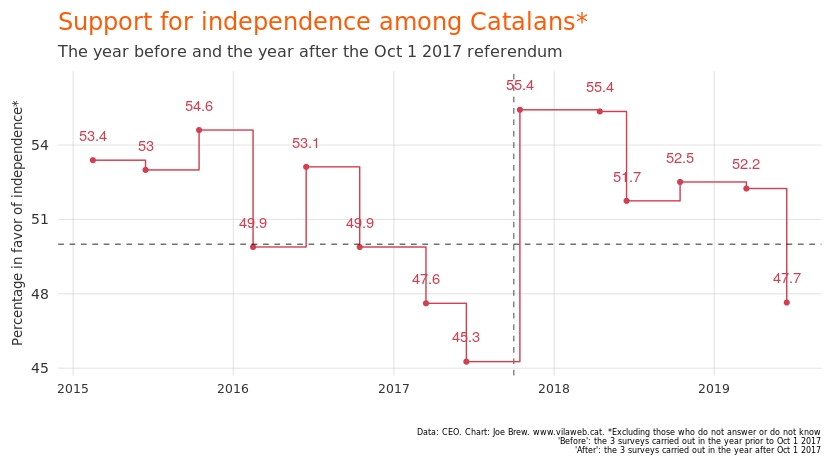
Polls are volatile due to sample size, selection effect, etc. So let’s aggregate the year (three polls) prior to the referendum and the year (three polls) after the referendum for a clearer take on the effect of the referendum itself:
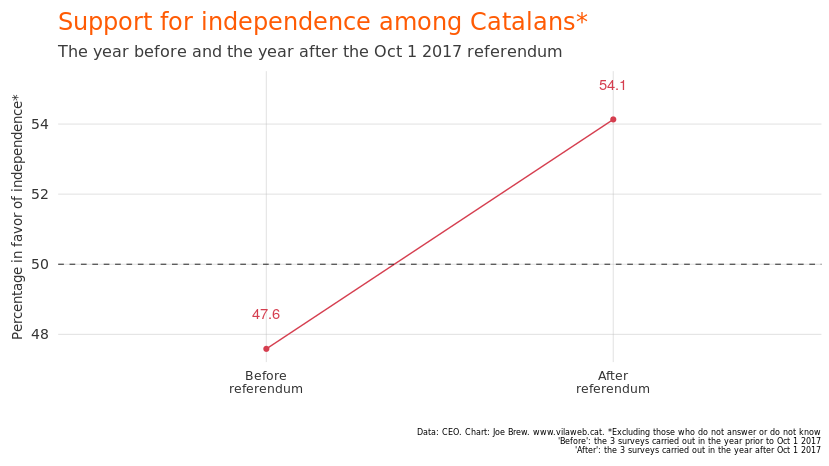
The increase in support for independence from the year prior to the referendum to the year after the referendum is large. The question is: in which groups did that increase take place? Let’s have a look:
By age
I anticipated that the young, whose opinions are still not fully formed and are therefore more “impressionable” would have been more “affected” by October 1 than other age groups. But this isn’t the case: the increase in support for independence following the referendum was similar across all age groups:
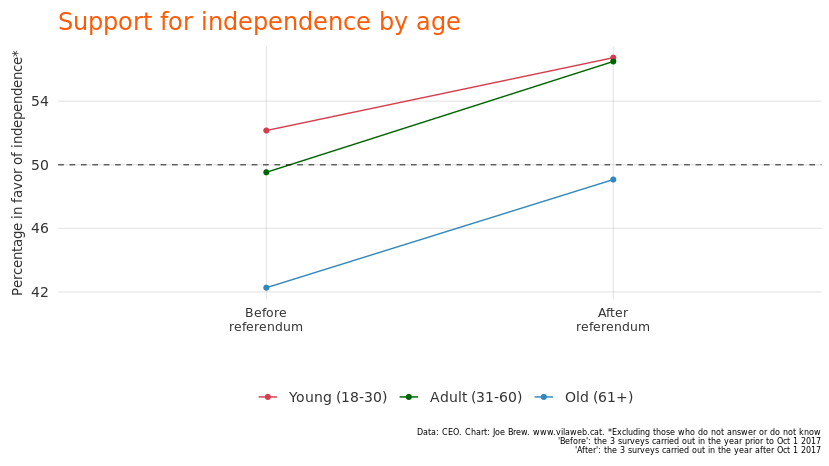
In fact, the results are similar even among the very young. Yes, support for independence is greater among them than those who are older, but the increase in support for independence following the referendum was similar (if not less) among the very young than others.
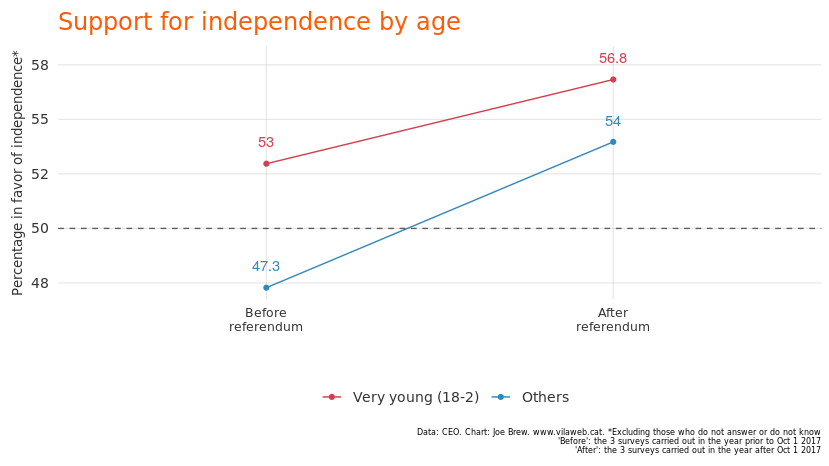
By geography
The increase in support for independence following the referendum was similar across provinces.
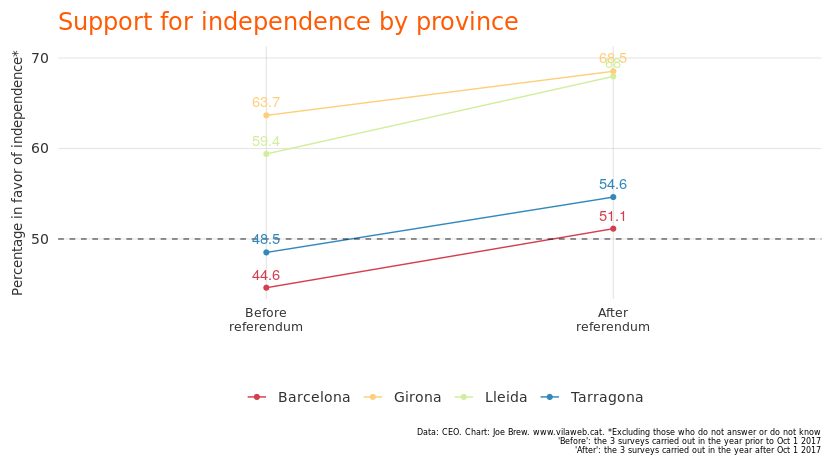
By language
The language which one considers to be his or her “own” is one of the strongest predictors for support or opposition to independence. In the year before and year after the referendum, the three major language groups (Catalan, Spanish, and both) all showed increased support for independence. Though in percentage points the increase was greatest among Catalan-speakers, in terms of relative growth the increase was greatest among Spanish speakers:
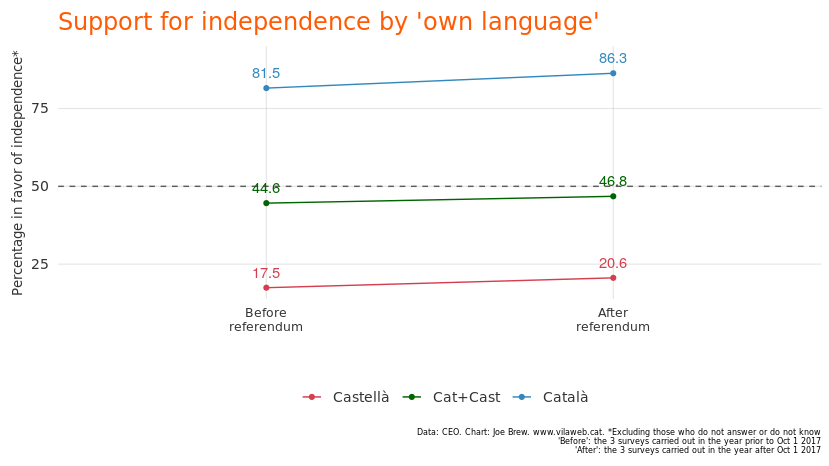
By birthplace of grandparents
Following the October 1 referendum, independence increased among Catalans with 0 grandparents born in Catalonia all the way to those with all 4 born in Catalonia. The increase was most pronounced, however, among those Catalans with no grandparents born in Catalonia.
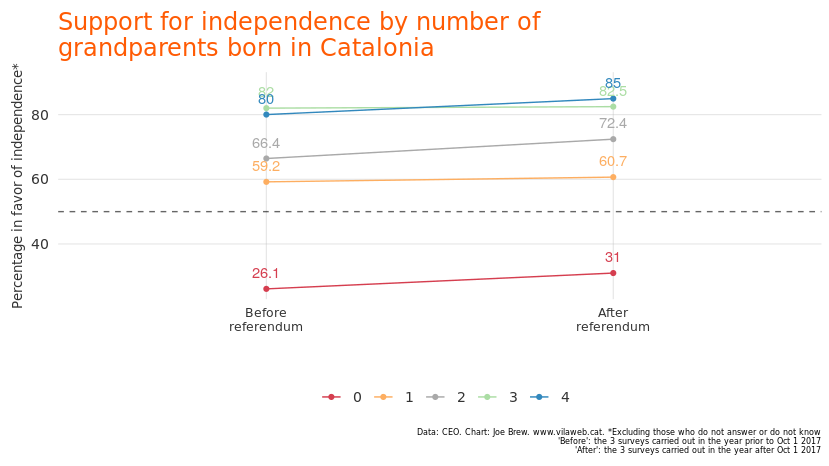
By party
Support for independence by preferred political party was virtually unaltered by the October 1st referendum (this could be, at least in part, due to the fact that those from one party who changed their mind on independence may also have changed their party).
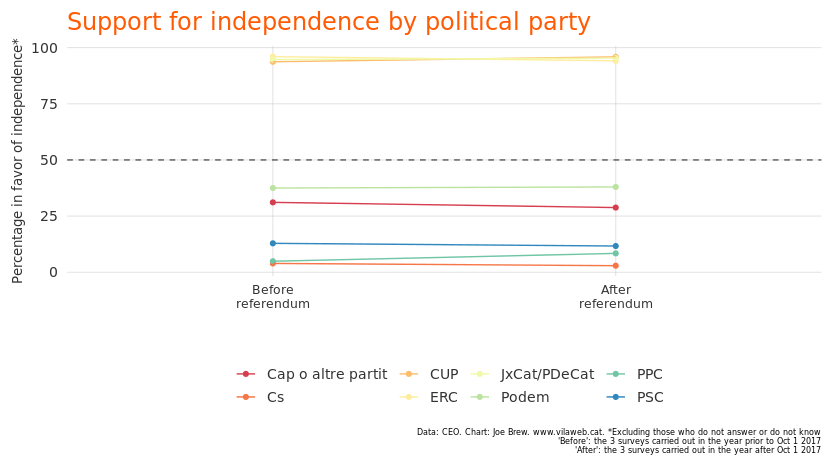
By extent of being informed about politics
The only group who saw support for independence go down from the year before to the year after the referendum was among those who said that they paid no attention “at all” to what is going on in politics.
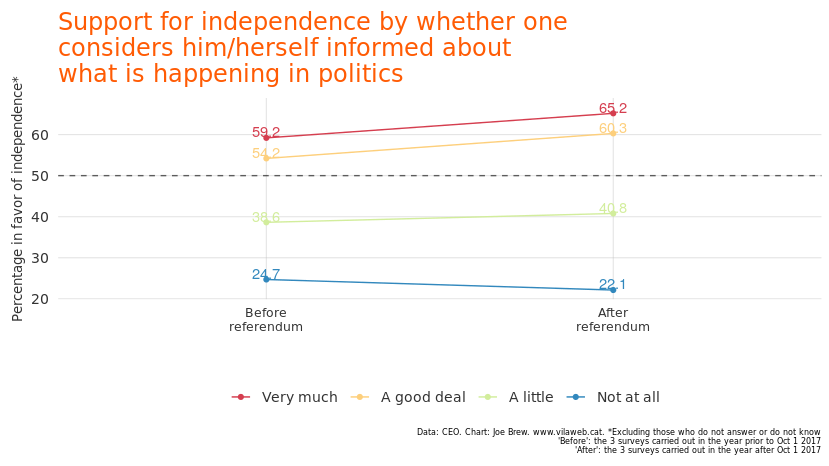
By extent of being interest in politics
As with being informed, being interested in politics meant larger increases in support for independence following the referendum. The only group which saw a decrease in support for independence after the referendum were those who said there were “not at all” interested in politics.
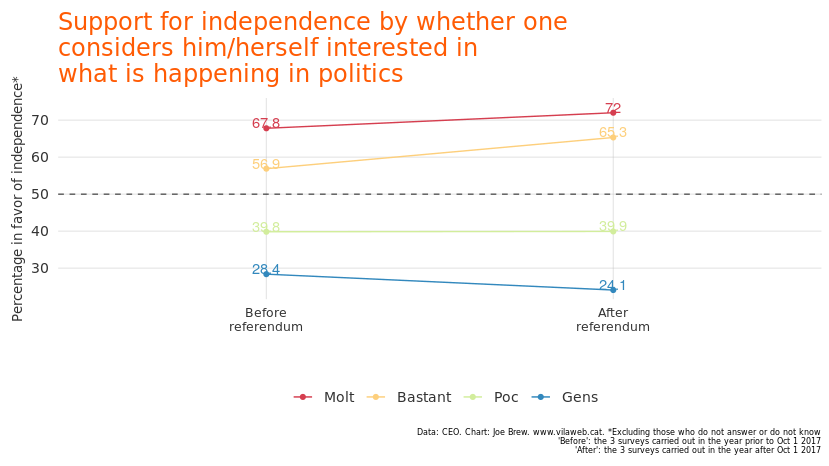
By left-right ideology
In the CEO surveys, Catalans rate themselves on a 0-10 left-right ideological scale (we’ve classified 0-1 as “far left”, 2-4 as “left”, 5 as “centre”, 6-8 as “right” and 9-10 as “far right”). Among all ideological groups, support for indendence increased as a result of the referendum, except for one: among those who consider themselves “far right”, support for independence decreased substantially.
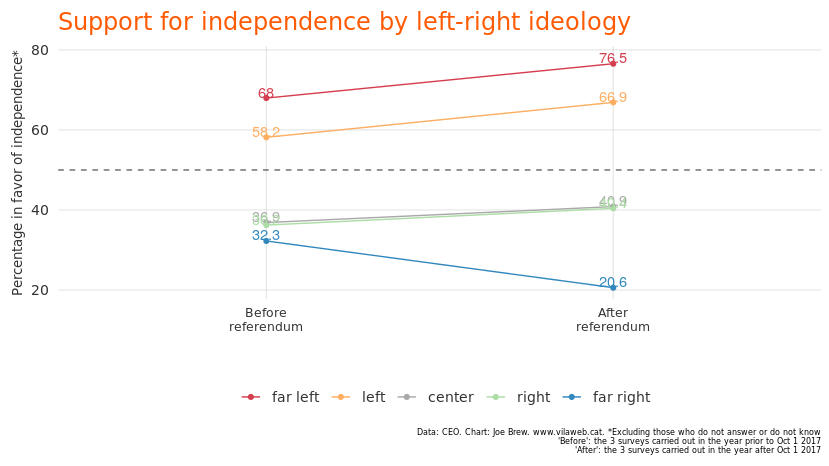
By place of birth
Catalans born in Catalonia have the highest support for independence, but Catalans born in the rest of Europe, outside of Europe, and in Spain also showed a substantial increase for support for independence following the referendum:
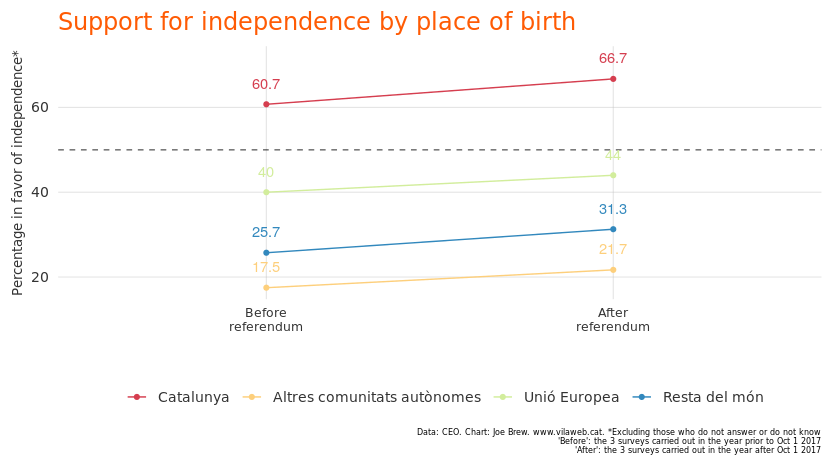
Conclusion
If we consider the “October 1st generation” to be those Catalans whose support for independence increased following the events of October 1st, then, well, it’s a bit hard to distinguish who gets the title. The “October 1st generation”, it appears, consists of both young and old, those born in Catalonia and elsewhere, those who speak Spanish or Catalan, and those in different geographies. The referendum was associated with a decrease in support for independence among some groups (the far right and those who say that they are not interested in or informed about politics), but the increase was largely transversal.
This reality contrasts starkly with the referendum being portrayed as a “violation” of the rights of Catalans. For example, Spain’s Minsitry of Foreign Affairs is sending documents to foreign journalists saying that organizing the referendum “deprived Catalans of rights”. Whether this statement is true or not, it’s clear that most Catalans don’t feel that way – if they did, support for independence would have decreased as a result of the referendum, not increased.
In any case, to the extent that this brief analysis has shown anything at all, it’s this: “the October 1st generation” isn’t exclusive to one age group, identity, or demographic. Relative to the year prior to the referendum, support for independence increased substantially in the year after the referendum, among many groups, including some who are generally hostile to independence.
Technical details
All code and data for this article are available here.

